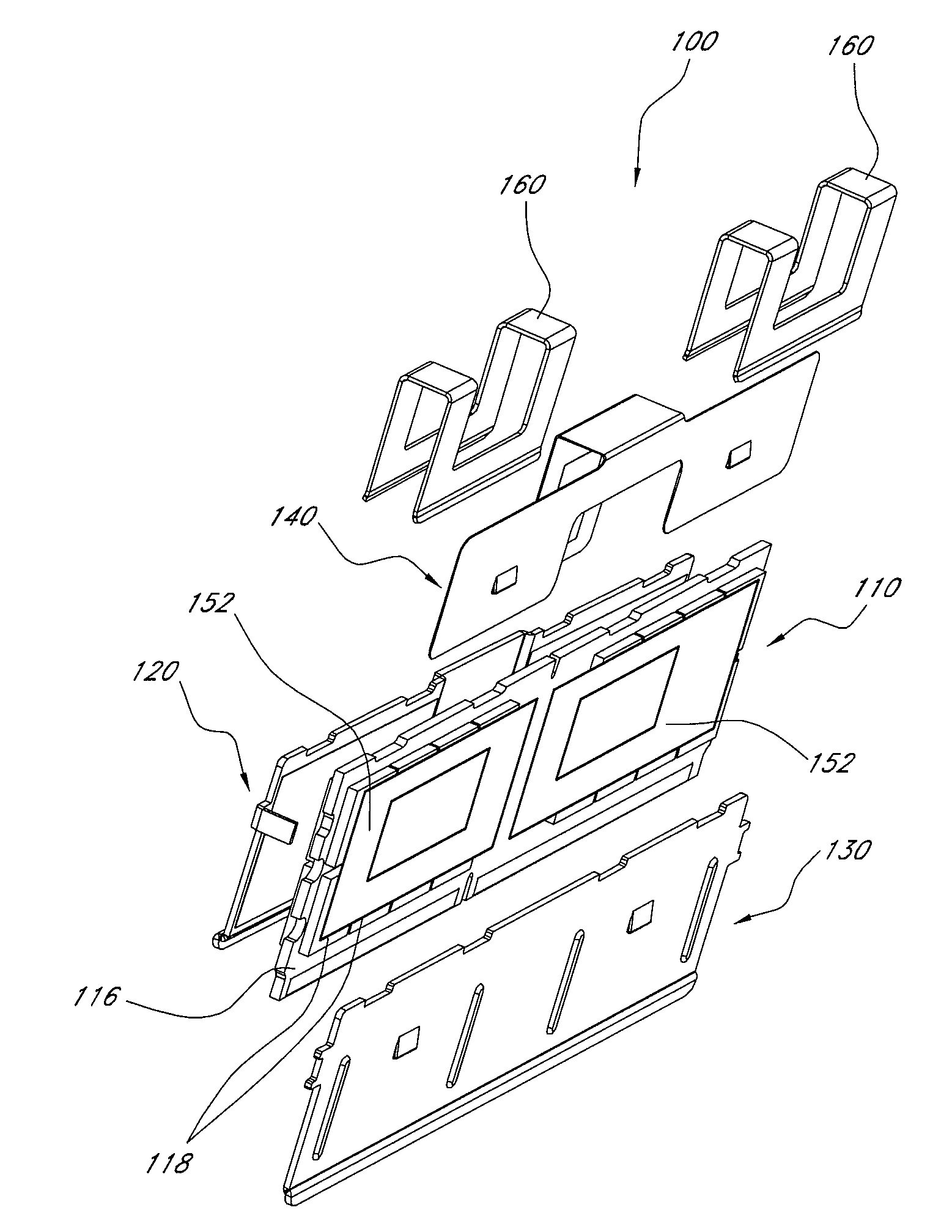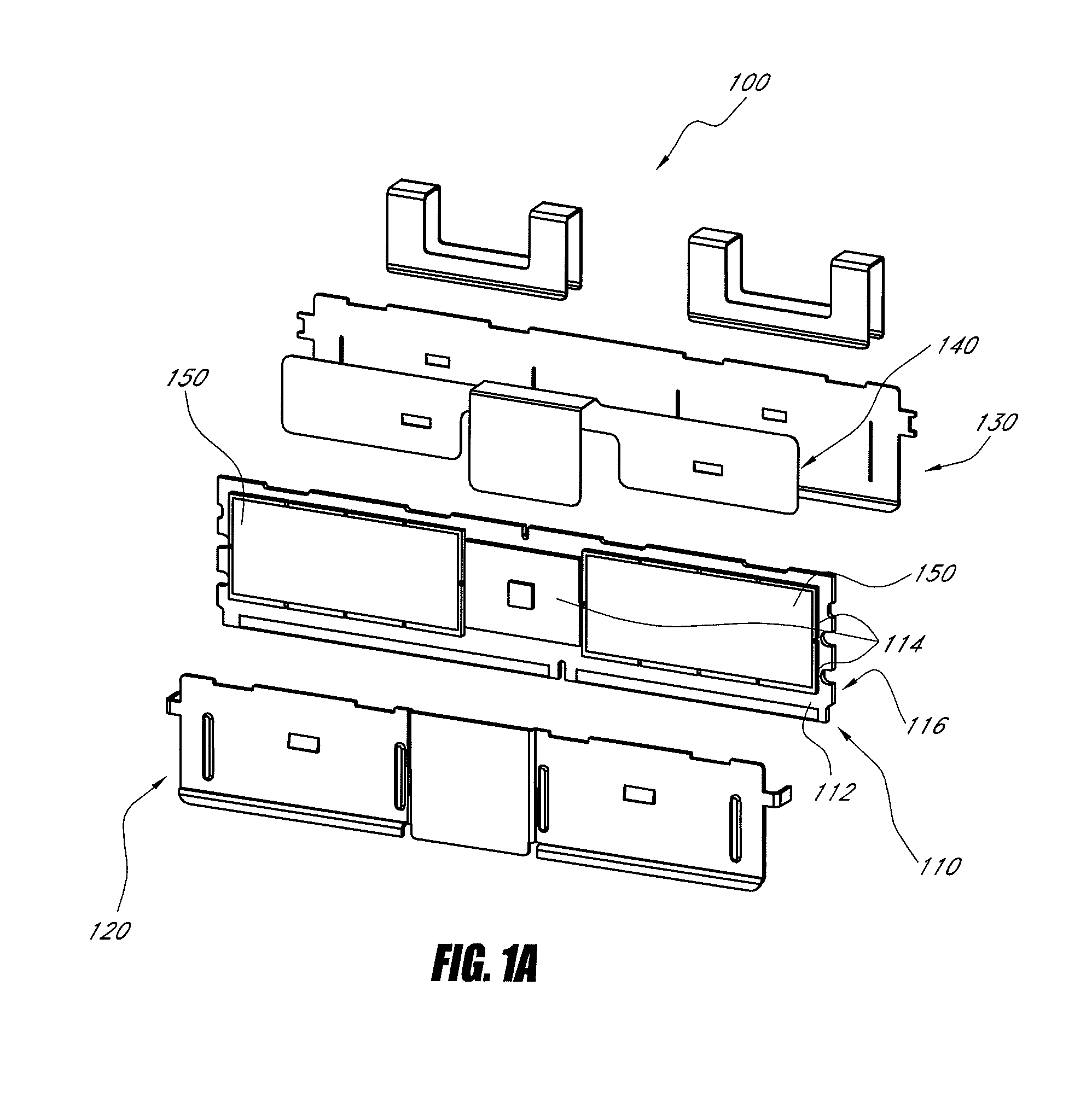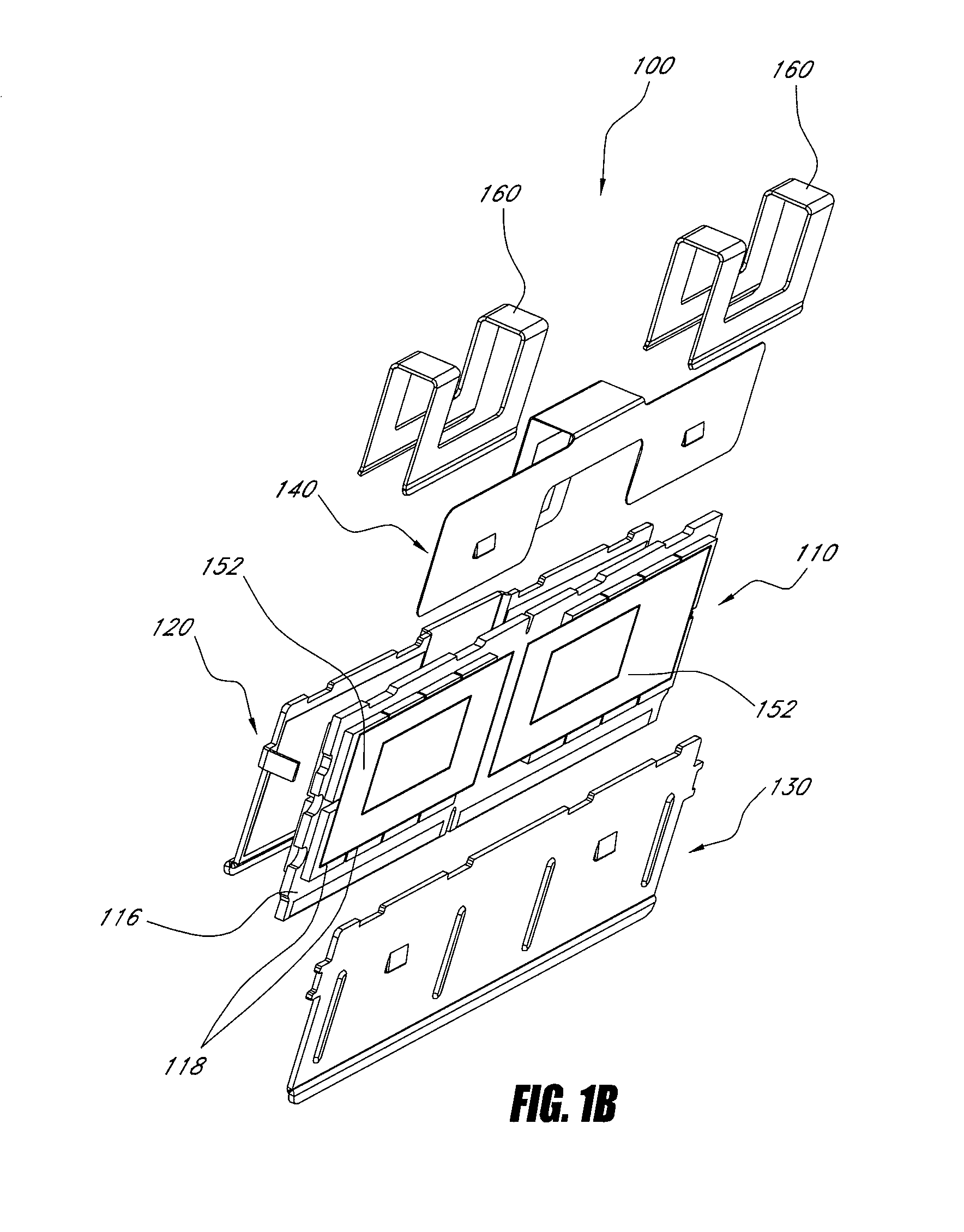Heat dissipation for electronic modules
a technology for electronic modules and heat dissipation systems, applied in cooling/ventilation/heating modifications, semiconductor/solid-state device details, semiconductor devices, etc., can solve problems such as degrading the performance of modules in end-use applications
- Summary
- Abstract
- Description
- Claims
- Application Information
AI Technical Summary
Problems solved by technology
Method used
Image
Examples
Embodiment Construction
[0027]Heat dissipation systems for electronic modules typically include one or more heat spreaders which generally distribute heat evenly across the surface area of the electronic module (e.g., memory module), and they also tend to heat cooler components on the module, thereby causing these components to operate at slower speeds. For example, for fully-buffered dual-inline memory module (FBDIMM) designs which use an advanced memory buffer (AMB), heat dissipated by the AMB can increase its temperature by 125° C. or more. This increased temperature not only degrades the performance of the AMB, but also affects its long-term reliability. Many existing heat dissipation systems typically either cover the entire module on both sides, or are localized to draw heat from the AMB, which is typically the hottest component on the module.
[0028]In certain embodiments described herein, a heat dissipation system is provided which draws heat efficiently from the hotter components on the module and s...
PUM
 Login to View More
Login to View More Abstract
Description
Claims
Application Information
 Login to View More
Login to View More - R&D
- Intellectual Property
- Life Sciences
- Materials
- Tech Scout
- Unparalleled Data Quality
- Higher Quality Content
- 60% Fewer Hallucinations
Browse by: Latest US Patents, China's latest patents, Technical Efficacy Thesaurus, Application Domain, Technology Topic, Popular Technical Reports.
© 2025 PatSnap. All rights reserved.Legal|Privacy policy|Modern Slavery Act Transparency Statement|Sitemap|About US| Contact US: help@patsnap.com



